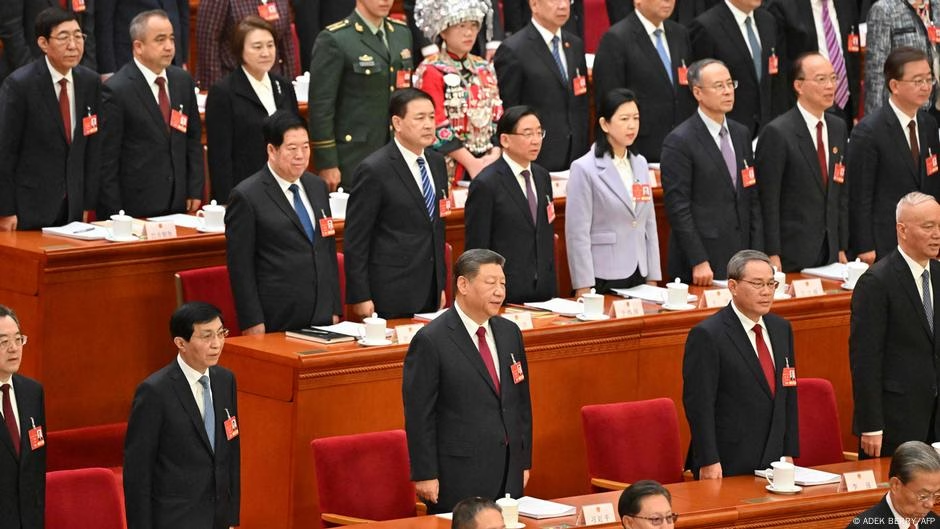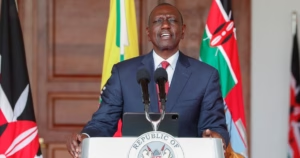China has initiated its major political and legislative meetings this week amidst escalating trade tensions following the imposition of new tariffs by the administration of U.S. President Donald Trump. Thousands of delegates from across the nation have gathered in the capital, Beijing, for the annual “Two Sessions,” which include the near-concurrent meetings of China’s National People’s Congress (NPC) and the Chinese People’s Political Consultative Conference (CPPCC). Although the delegates are known to endorse decisions already made in secret by the ruling Chinese Communist Party (CCP) leadership, these annual events are crucial for understanding Beijing’s policy direction for the year, especially considering the significance of Trump’s efforts to redirect global trade and investment flows by imposing sweeping tariffs on U.S. economic partners.
Speaking at the opening session, Chinese Premier Li Qiang announced a 5% growth target for 2025, despite the uncertain external environment and ongoing domestic economic challenges. Li highlighted that the multilateral trading system is experiencing disruptions and that tariff barriers are increasing, describing the escalating U.S.-China competition as changes “unseen in a century” and emphasizing that an increasingly complex and severe external environment may impact China in areas such as trade, science, and technology.
China has also retaliated against the U.S. tariffs, with additional 10%-15% tariffs on certain U.S. imports set to take effect on March 10. Beijing’s response, while showcasing its capability to hit back, may have a smaller impact than expected, according to Chenggang Xu, a senior research scholar at the Stanford Center on China’s Economy and Institutions. Antonia Hmaidi, a senior analyst at the Mercator Institute for China Studies (MERICS), noted that U.S. tariffs are unlikely to alter China’s vision for its economy, as Beijing prioritizes its long-term trajectory over short-term issues.
The high-tech sector is a key focus for China, with Hegemony Initiative and Industrial Internet policies reflecting Beijing’s ambitions for tech self-reliance, as seen in recent government work reports. The success of Chinese AI company DeepSeek also underscores China’s progress in the tech industry. However, China is facing an economic slowdown due to weak domestic demand, a struggling real estate market, and high unemployment. While there has been talk of boosting consumption to accelerate growth, real solutions to reverse the economic slowdown remain lacking, according to Chenggang Xu. China is preparing to face further external challenges by moderately loosening its fiscal policy. lactic a n tl = 7
Source: https://www.dw.com/en/china-lays-out-path-to-navigate-trade-tech-tensions/a-71847247?maca=en-rss-en-all-1573-rdf







